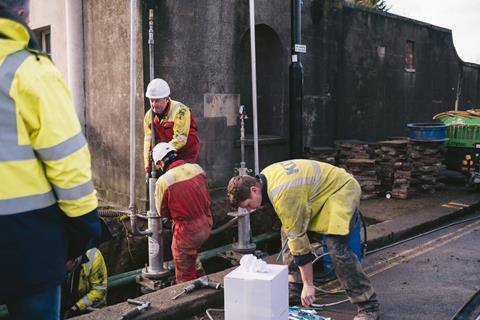Consultant warns firms not to abandon long-term strategies
High borrowing costs, labour shortages and high material costs are conspiring to cancel out the deflationary effects of dropping demand, according to Turner & Townsend.
Despite construction new orders settling 10.9% below pre-pandemic levels, the consultant stuck to the tender price inflation forecasts it made in its last market intelligence report.

Real estate forecasts are 3.7% and 2.7% for 2023 and 2024, respectively, while T&T anticipates 5.5% and 4.5% for infrastructure.
The report urged firms not to abandon long-term strategies or cut corners to tackle short-term economic challenges.
Martin Sudweeks, UK managing director of cost management at Turner & Townsend, said: “Our industry is currently managing an incredibly complex landscape as we experience both softening demand and the continued input cost inflation.
“This is driven in large part by an endemic skills shortage that is pushing up labour costs.
“In the face of immediate cost challenges, it may appear an attractive option for clients to dedicate their efforts to firefighting the issues of ‘today’, while losing sight of commitments to policies like net zero.
“However, clients should instead be prioritising their long-term strategies, and understanding how profitability, project performance and sustainability can be complementary goals.
“By doing this, clients will be able to achieve both short-term stability and future, strategic success.”
The report also found that non-housing repairs and maintenance remains a growth sector – up 2.7% – while some pockets of the infrastructure market, such as water and energy, have proven resilient.
More broadly, infrastructure projects are feeling the impact of project rescheduling because of prolonged inflationary pressure.


























No comments yet